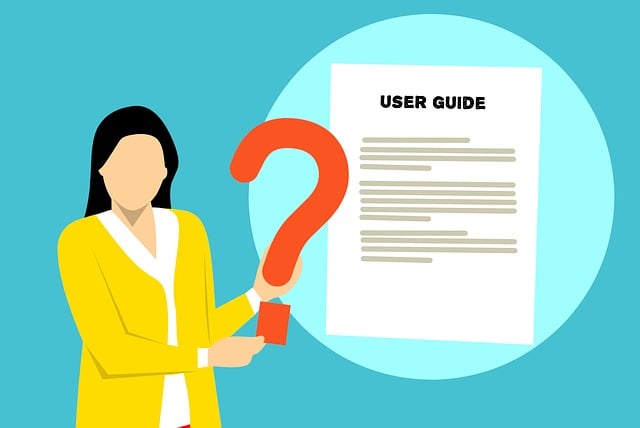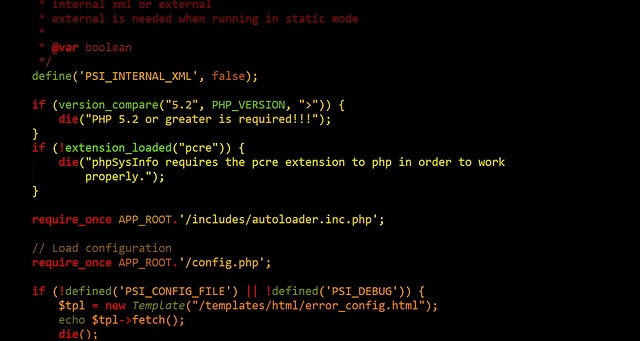The FAQ JSON-LD Code is a powerful tool for website owners, offering enhanced SEO and user experience. This JSON-based code allows search engines to understand and display FAQs directly on SERPs, improving visibility and engagement. By implementing this schema, websites can transform static content into an interactive accordion interface, making it easier for users to find answers. Effective FAQ organization, including strategic categorization, clear language, and Accordion Schema integration, drives higher click-through rates, reduced bounce rates, and improved average session duration. Analyzing user engagement metrics confirms the code's success in boosting SEO rankings and user satisfaction.
In today’s digital landscape, enhancing user engagement and maximizing search visibility are paramount. One powerful strategy gaining traction is integrating FAQPage schema with your content, especially through the utilization of FAQ JSON-LD code. This article explores how this simple yet effective technique can transform your website’s search engine results page (SERP) real estate. From understanding the FAQPage schema to advanced optimization tips, discover why and how to leverage this method for improved user experience and increased online visibility.
- Understanding FAQPage Schema and Its Benefits
- How FAQ JSON-LD Code Enhances Search Visibility
- Implementing FAQ Schema in Your Content Strategy
- Best Practices for Creating Effective FAQs
- Measuring Success: Analyzing User Engagement with FAQ Rich Results
- Advanced Tips to Optimize Your FAQ Page for SEO
Understanding FAQPage Schema and Its Benefits

The FAQPage schema is a powerful tool for website owners aiming to enhance their search engine visibility and user experience. This JSON-LD code allows search engines to understand that your website contains frequently asked questions and their answers, making it eligible for rich FAQ results in search engine result pages (SERPs). By implementing this schema, you provide users with quick access to relevant information, reducing bounce rates and increasing engagement.
Rich FAQ snippets offer an improved user experience by displaying concise question-and-answer pairs directly in the SERP, providing a clear overview of what your webpage is about. This optimization technique not only makes your website more attractive to potential visitors but also helps capture their attention, leading to higher click-through rates and better overall performance. Implementing the FAQPage schema is a straightforward process that involves adding specific code to your website’s HTML, ensuring a structured and valuable resource for both search engines and users alike.
How FAQ JSON-LD Code Enhances Search Visibility

The implementation of FAQ JSON-LD Code is a powerful strategy to boost online visibility and user experience. This code, structured in a JSON format, provides search engines with valuable information about frequently asked questions (FAQs) present on a webpage. By adding this schema to your content, you enable search engines to understand the context and intent behind your FAQ section, resulting in enhanced search visibility. When a user queries for specific answers or information, the search engine can now extract relevant data from your JSON-LD code and display it as rich snippets in the search results page (SERP).
This optimization technique goes beyond mere code implementation; it’s about crafting an Accordion Schema SEO strategy that aligns with user behavior. By presenting FAQs in a structured, digestible format, users can quickly find solutions without scrolling through lengthy pages. This not only improves engagement metrics but also encourages users to explore more of your content, ultimately increasing the time they spend on your site and potentially improving your search rankings.
Implementing FAQ Schema in Your Content Strategy

Implementing FAQ Schema in Your Content Strategy involves integrating structured data through the FAQ JSON-LD Code within your web pages. This code allows search engines to recognize and display your content as rich FAQ results, enhancing user engagement by providing quick answers to common queries directly on the SERP (Search Engine Results Page). By adding this schema, you’re essentially transforming your static content into an interactive experience, where users can expand or collapse questions using an accordion-like interface.
This strategic move not only boosts user satisfaction but also signals to search engines that your website offers valuable, question-answering content. In turn, search algorithms may prioritize such pages in relevant searches, increasing visibility and driving more organic traffic. Therefore, incorporating FAQ Schema is a powerful SEO tactic, particularly when combined with Accordion Schema SEO techniques, ultimately optimizing your site’s potential to capture real estate on the SERP and attract more engaged visitors.
Best Practices for Creating Effective FAQs

Creating effective FAQs involves a mix of strategic planning and user-centric design. Firstly, organize your questions based on topic relevance and common search queries. This ensures users find answers to their most pressing issues swiftly. Use a clear and concise language that avoids jargon, making it accessible to a broad audience. Each question should be followed by a straightforward, detailed answer, provided in bullet points or numbered lists for better readability.
The FAQ JSON-LD Code plays a pivotal role in enhancing your site’s visibility for rich FAQ results on search engines. When implementing the Accordion Schema SEO, ensure every question is uniquely identified and linked to its corresponding answer. This structured data helps search engines understand your content hierarchy, boosting your page’s chances of displaying expanded FAQs with clickable topics on SERPs. Remember, a well-structured FAQ not only improves user experience but also signals to search engines that your site offers valuable, immediately actionable information.
Measuring Success: Analyzing User Engagement with FAQ Rich Results

To measure success when implementing the FAQPage schema, it’s crucial to analyze user engagement with the rich FAQ results. Tools like Google Search Console and Google Analytics can provide valuable insights into how users interact with your enhanced search snippets. Pay close attention to metrics such as click-through rates (CTRs), average session duration, and bounce rates. A high CTR on FAQ-rich results indicates that these snippets are attracting user interest and driving them to your site. Increased time spent on the page and lower bounce rates suggest that users are finding relevant answers, improving their experience, and encouraging deeper engagement with your content.
By incorporating the FAQ JSON-LD Code effectively, you can unlock the full potential of Accordion Schema SEO, enhancing your website’s visibility and performance in search engine results pages (SERPs). As users benefit from streamlined access to information, your site stands out among competitors, leading to better user satisfaction and, ultimately, higher conversion rates.
Advanced Tips to Optimize Your FAQ Page for SEO

To optimize your FAQ page for SEO, consider implementing advanced techniques that go beyond basic schema markup. Utilizing the FAQ JSON-LD Code ensures your search engine crawlers understand the nature and structure of your content. This code provides a clear Schema FAQPage Type representation, signaling to search engines that your page is dedicated to answering common user queries.
Incorporating best practices for FAQ Snippet Optimization further enhances visibility. Crafting compelling and concise question-and-answer pairs increases the likelihood of rich snippet displays, attracting more user clicks. Additionally, structuring your FAQ content logically and ensuring it aligns with user search intent can significantly improve engagement and your page’s SERP real estate.
